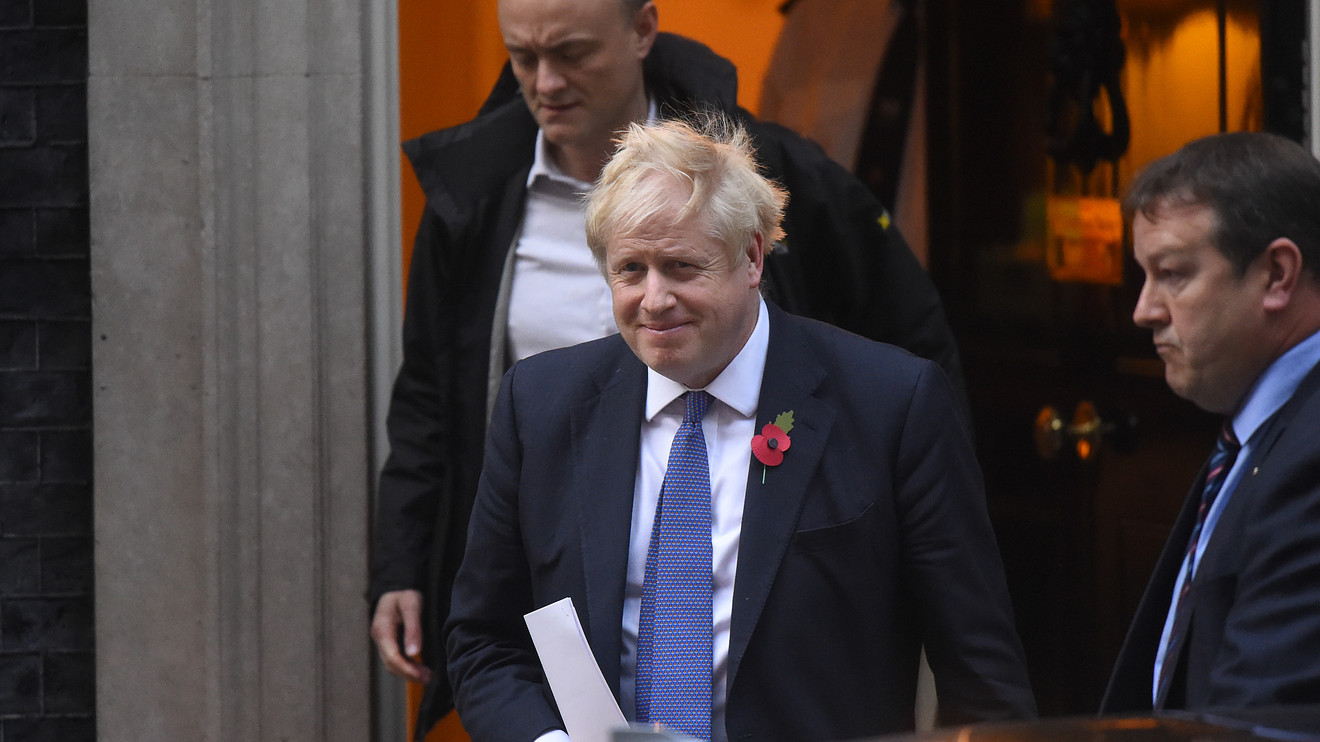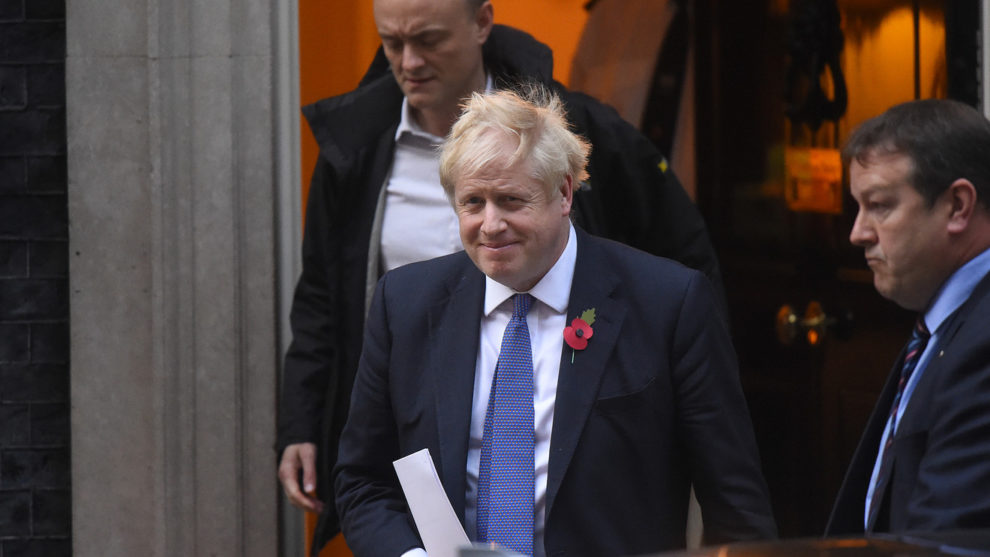
“The interminably tedious EU-UK divorce process,” as described by UBS analyst Paul Donovan, has been given a new deadline — “extension” in diplomatic lingo — by European leaders’ decision to push the official Brexit date to January 31. And the prospect of elections in the first half of December opens the way for the possible end of the current political deadlock in the U.K.
It is the fourth such delay the EU has agreed to since March, but this time, it might be different. Investors shouldn’t treat it as just another prolongation of Brexit uncertainty, but as a step toward the end of the tunnel. On the other hand, it also increases the possibility that U.K. Prime Minister Boris Johnson will be able to get his deal approved by Parliament — which would trigger a severe hit to the U.K. economy.
The House of Commons, the U.K. lower house of Parliament, is due to vote today on a compromise between Johnson’s election bill and one from the centrist Liberal Democrats and the Scottish National Party triggering a general election before Christmas.
On Tuesday the Labour Party decided to support this compromise.
1 — No-deal recedes
The possibility of the U.K. crashing out of the EU without any form of deal has not entirely disappeared, but the scenario is now much less likely, at least in the short term. British MPs opposed to no-deal dominate the House of Commons — that’s the only issue that can command a majority.
Even if investors don’t believe the government’s pledges that it wants to avoid no-deal, it’s hard to envisage a scenario where this could happen — unless the next parliament looks like the current one, hung and divided, or if it is dominated by hard Brexiteers. That is now a matter for British voters to decide, but these scenarios are not among the most likely.
2 — Uncertainty retreats
Besides the certainty of an extension, investors can now breathe a sigh of relief on the prospect of new elections, a chance to break the U.K. parliamentary deadlock. As shown in the past three months, a minority government such as Johnson’s can’t pass crucial laws on matters as crucial to the country’s long-term interest as leaving the EU.
Uncertainty has also diminished due to the EU’s patience with the UK’s political crisis. French President Emmanuel Macron had expressed reservations about a three-month delay but joined the others once the path to an election was clearer. This demonstrates that EU leaders will keep playing ball, and would be ready to resume negotiations on another deal, with another U.K. government that would be ready to move London’s red lines.
Finally another sort of uncertainty is also fading: a new referendum on Brexit, as demanded by the People’s Vote movement, now seems more remote than ever.
3 — Johnson’s deal returns
The extension, coupled with the likelihood of new elections in December, increases the chance of the UK-EU deal struck by Johnson being passed by Parliament at last. His Conservative Party for now has a commanding lead in the polls over the Labour Party and the Liberal Democrats. Caution is warranted since former PM Theresa May had an even more impressive lead a few weeks before the 2017 election, which ended in a hung parliament. But if the Tories win as currently expected, Johnson will finally get his say.
However, the deal on the table would have the worst economic consequences of all the options considered until now, save for a hard-deal Brexit, as shown by a recent study by UK in a Changing Europe, a think tank. That’s mostly because the current prime minister does not intend to keep the U.K. as close as possible to the EU in the “future relationship” that both sides will negotiate, once Britain has legally left the bloc.
In other words, investors may have just traded the uncertainty of political chaos for the certainty of economic shock.












